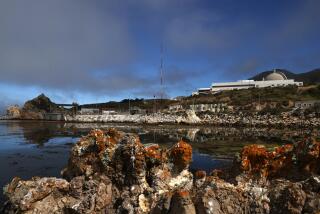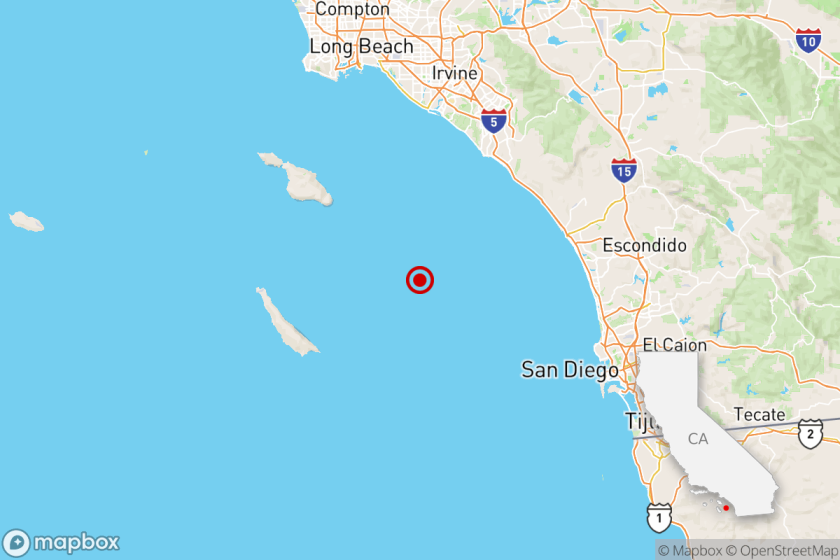NRC: Earthquake shook nuclear plant past design limits
Reporting from Washington — A nuclear power plant in central Virginia may have experienced twice as much shaking as it was designed to withstand during last month’s rare East Coast earthquake, according to federal nuclear regulators, although no major damage has been found.
Dominion Virginia Power, operator of the North Anna plant, confirmed that ground motion from the Aug. 23 quake exceeded the plant’s design. But the company contended that the shaking was not as severe as federal regulators claimed.
The data, as well as new details of the damage revealed at a Nuclear Regulatory Commission hearing Thursday, paint the clearest picture yet of how the magnitude 5.8 earthquake rocked a nuclear plant only a dozen miles from the epicenter in Mineral, Va.
North Anna is the first nuclear power plant in the country to undergo ground motion that exceeded its design. Industry watchdogs say the case reinforces the need to reassess seismic risk at more than two dozen nuclear plants across the country.
Sen. Barbara Boxer (D-Calif.), who has pressed the NRC for stricter seismic standards, called the data “another strong wake-up call” to make sure nuclear plants “are built to withstand earthquakes and other seismic conditions based on the latest scientific data.”
At the hearing at NRC headquarters in Rockville, Md., Dominion officials described the quake damage at the North Anna plant as minor. They said it included cracks in walls of the two reactor containment units, and shifts of concrete pads under casks that store used nuclear fuel.
The 1,800-megawatt plant remains off line. The NRC has sent inspectors to the facility and the commission plans to report their findings at the end of September, including specific actions Dominion must complete before North Anna can resume operations.
“We will not start up North Anna until we are 100% confident … that it is safe to do so,” said Larry Lane, Dominion’s vice president for the facility.
NRC officials said preliminary seismic data from the U.S. Geological Survey show the quake shook parts of North Anna at rates equal to 26% of the force of gravity.
The plant was designed to withstand jolts registering 12% and 18% of the force of gravity for the sections built on rock and soil, respectively.
Dominion, using different instruments to measure the seismic data, said the shaking briefly exceeded between 10% and 20% of the design standard .
“The take-away at this point is that the significant additional engineering margin that went into building the plant certainly allowed it to shut down safely in the face of an earthquake that by standard definitions exceeded its original design,” said Scott Burnell, a spokesman for the NRC.
But Edwin Lyman, a nuclear expert with the nonprofit Union of Concerned Scientists, said the quake shows current seismic standards for nuclear plants may be inadequate.
“This should give new momentum to the effort to examine every plant in the United States and whether or not they may be more vulnerable to a whole host of natural phenomena than [they were] designed to withstand,” Lyman said.
Lyman said federal regulators should stiffen standards to increase safety. “It makes more sense to spend more money in beefing up defense rather than coping with the aftermath,” he said.
Tom Hamburger of the Washington Bureau contributed to this report.
More to Read
Sign up for Essential California
The most important California stories and recommendations in your inbox every morning.
You may occasionally receive promotional content from the Los Angeles Times.











